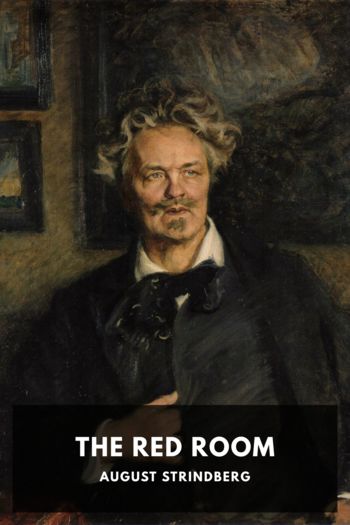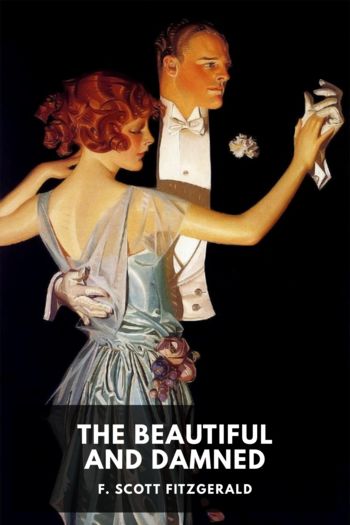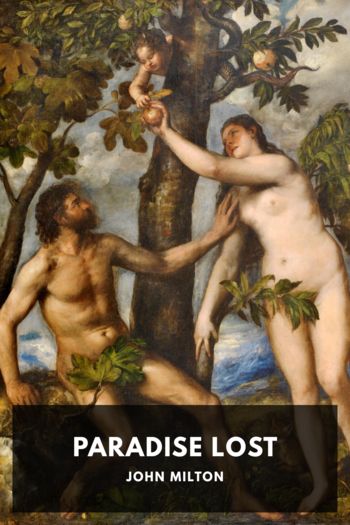The Inferno by August Strindberg (love novels in english .txt) 📕

- Author: August Strindberg
Book online «The Inferno by August Strindberg (love novels in english .txt) 📕». Author August Strindberg
Now that the existence of the invisible Hand, which guides me over rough paths, has become a certainty to me, I no longer feel solitary, and keep a careful watch over my words and actions, although, it must be confessed, I am not always successful. But whenever I slip, I am at once arrested and punished with such punctuality and exactness, that I have no doubts left regarding the interposition of a judicial power. The Unknown has become for me a personal acquaintance with whom I speak, whom I thank, whom I consult. Very often I compare Him in my mind with the “demon” of Socrates, and the consciousness that the unknown powers are on my side lends me an energy and confidence which impel me to unwonted efforts of which I was formerly incapable.
A bankrupt as regards society, I am born into another world where no one can follow me. Things which before seemed insignificant attract my attention, my nightly dreams assume the form of premonitions, I regard myself as a departed spirit, and my life proceeds in a new sphere.
After having demonstrated the presence of carbon in sulphur, I have to demonstrate the presence of hydrogen and oxygen which, according to analogy, ought to be found in it.
Two months pass in calculations and surmises till the apparatus necessary for making the experiments is exhausted. A friend advises me to go to the Sorbonne laboratory, where strangers are admitted. But my timidity and shyness of crowds does not permit me to think of it; I suspend my experiments and take a rest.
One fine spring morning I wake up in good spirits. I walk through the Rue de la grande Chaumière to the Rue de Fleurs, which leads to the Jardin du Luxembourg. The small, pretty street is quiet, the great avenue of chestnut trees is cheerful and green, broad and straight as a racecourse. Quite in the background the statue of David rises like a boundary mark, and high over all the dome of the Pantheon, surmounted by a golden cross, seems to touch the clouds. I remain standing, delighted with the significant spectacle, when accidentally on my right my eyes fall on a dyer’s shield at the end of the Rue de Fleurs. Painted on the window of the dyeing-house stand over a silver cloud the initials of my name A. S., and over them is arched a rainbow.
Omen accipio! and am reminded of the passage in Genesis, “I have set my bow in the clouds to be a sign of the covenant between me and the earth.”
I seem no longer to touch the ground, but to float in air, and with winged feet enter the garden, which is now quite empty. In this early morning hour I am the exclusive possessor of this park, with all its glory of roses, and I know all my flowers in their beds—chrysanthemums, verbenas, and begonias.
Going down the racecourse I reach the boundary mark, pass through the trellised gate to the Rue Soufflot, and turn to the Boulevard St. Michel, where Blanchard’s antiquarian bookshop attracts my attention. Casually I take up an old chemical work by Orfila, open it at haphazard and read, “Sulphur has been classified among the simple bodies. Davy and Berthollet, however, have endeavoured to prove by their able experiments that it contains hydrogen, oxygen, and a third basal element which has not yet been distinguished.”
One may imagine my almost religious ecstasy at this well-nigh miraculous discovery. Davy and Berthollet had demonstrated the presence of hydrogen and oxygen, and I of carbon. It rests, therefore, with me to lay down the formula for sulphur.
Two days later my name was entered on the list of the scientific faculty of the Sorbonne (founded by St. Louis!), and I received permission to work in the laboratory. The first morning I went there was for me a solemn occasion. I was under no illusions as regards the professors, who had received me with the cold politeness due even to a foreign intruder. I knew that I should never be able to convince them, but I felt simultaneously a calm still joy, and the courage of a martyr who faces a hostile crowd, because for me at my age youth was the natural enemy.
As I crossed over the square before the little church of the Sorbonne, I found the door of it open and entered it, without any definite reason; the Virgin Mother and Child smiled at me in a friendly way; the Cross left me, as always, cold and without comprehension





Comments (0)